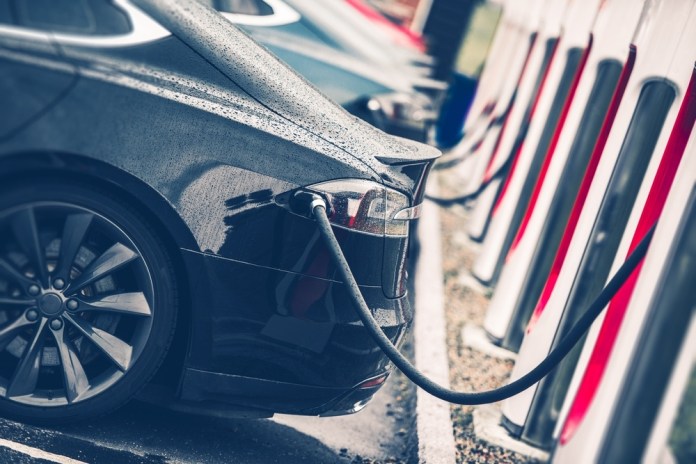The Obama administration announced on Friday a new initiative to increase clean energy use with new electric vehicle charging stations and business partnerships.
The United States Department of Transportation (DOT) will be establishing 48 vehicle charging stations. The statement announces that the electric vehicle routes will be placed in 35 different states and will cover 25,000 miles.
28 states, vehicle manufactures, and utility companies are working on speeding up the release of electric vehicle charging stations across U.S. highways. In fact, Nissan, General Motors, General Electric, and BMW are working on the release of the EV charging stations.
In addition, 24 states and local governments are partnering with the Obama administration to increase the purchase and use of electric vehicles among their municipal fleets. Nearly 40 businesses, non-profits, universities and utilities are working on the Department of Energy’s Workplace Charging Challenge and will provide EV charging access for their employees.
The new initiative will provide nearly 25,000 miles of electric vehicle routes across 35 different states. This will allow for drivers to locate charging stations to find a new charging station every 50 miles.
In the announcement, the Department of Energy also plans on publishing two studies to determine how the best number of charging stations and how to provide the best system to allow people to charge their vehicles.
“The first is a national EV infrastructure analysis that identifies the optimal number of charging stations for different EV market penetration scenarios,” The White House explains in a press release. “The second will provide best practices for EV fast charging installation, including system specifications as well as siting, power availability, and capital and maintenance cost considerations.”

Currently, there are several different types of electric and alternative vehicles in the market. From BMW’s i3 to Tesla’s Model S, consumers have the ability to skip the gas station and drive on battery powered cars. The biggest problem for electric vehicles is “range anxiety” – when someone is anxious about their car battery running out of power before reaching their destination or finding a charging station. However, a new study published by researchers from MIT and the Santa Fe Institute and published in “Nature Energy” found that nearly 90 percent of U.S. drivers could be “replaced by a low cost electric vehicle available today, even if there’s no possibility to recharge during the day.”
But, in an effort to overcome range anxiety, researchers are working on car batteries that can last longer than batteries found in today’s hybrid electric vehicles. The Argonne National Laboratory won an award for their EnerDel/Argonne High-Power Lithium Ion Battery for Hybrid Electric Vehicles. Their newly developed battery is lighter, smaller and more powerful than the traditional batteries found in cars today.

